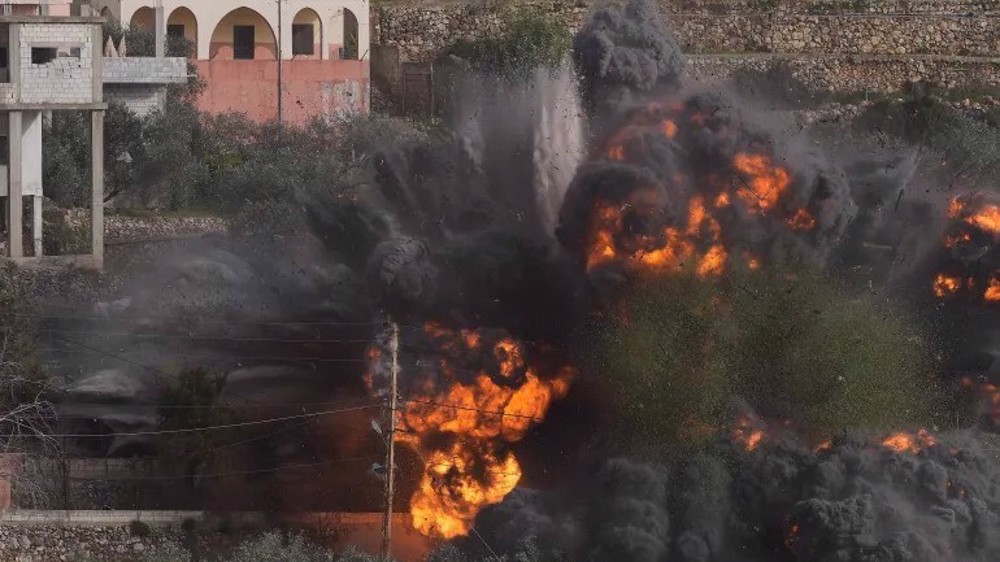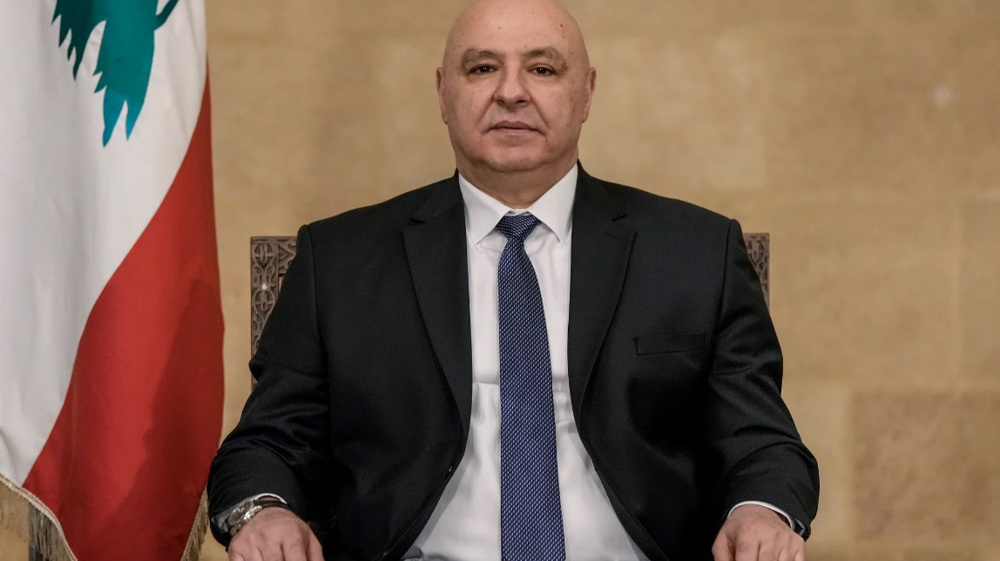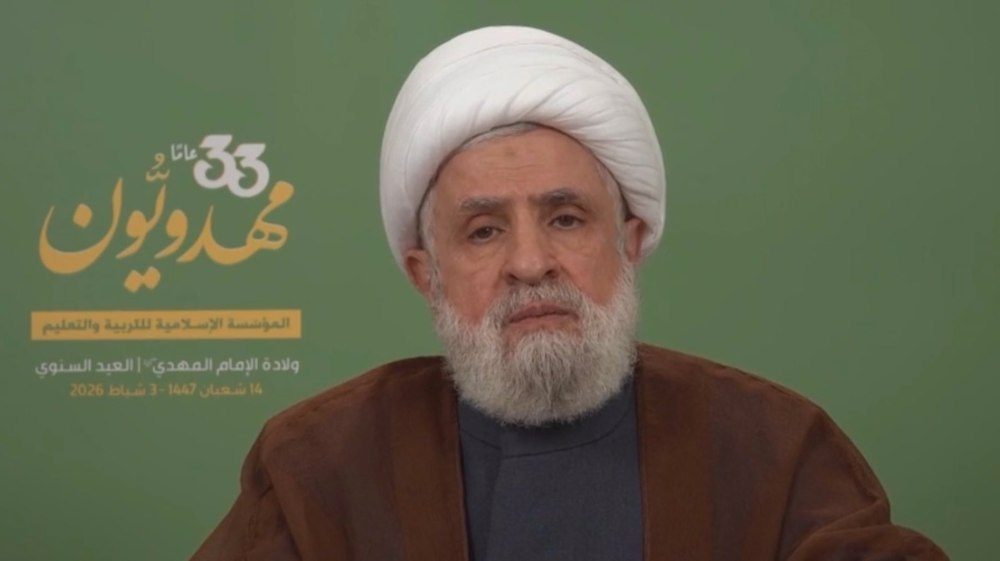Hundreds take to Beirut streets in protest against corruption
A large number of Lebanese protesters have taken to the streets in the capital Beirut to protest rampant corruption, poor living conditions and deteriorating economic conditions in the country.
Hundreds of demonstrators on Sunday marched on the prime minister's office in central Beirut to protest against Lebanon's fractious political class, widespread graft, and failing public services.
Some angry protesters sported the iconic yellow vests worn by anti-government protesters in France, adorned with a cedar tree, Lebanon's national symbol.
"There is corruption and theft of state funds," a 43-year-old woman who introduced herself as Hana told media outlets at the rally. "We are governed by a political class of corrupt thieves who rule with sectarian fanaticism."
Dozens also demonstrated in the northern city of Tripoli and in Nabatiyeh in the south. The demonstrators demand what they call their "most basic rights." Their demands include a reintroduction of housing loans stalled for nearly a year and more access to healthcare, water and electricity.

Anger has been mounting over political deadlock that has left the country without a government since May.
Lebanon's first parliamentary vote in nine years was held on May 6, with over 500 candidates vying for seats.
According to official results, the resistance movement of Hezbollah, which defends the country against the Israeli aggression, and its political allies won more than 70 of the 128 seats. Hezbollah's allies include the Amal Movement, led by Parliament Speaker Nabih Berri, and the Christian Free Patriotic Movement, founded by President Michel Aoun.
The Western- and Saudi-backed Saad Hariri, however, lost more than a third of the seats held by his party’s lawmakers.
The cabinet seats must be allocated among rival groups according to a sectarian system that permits Sunnis, Shias and Christians to represent the portfolios.
Hariri, himself a Sunni Muslim, has resisted a seat demanded by a group of six Sunni parliamentarians allied to Hezbollah.
The most powerful ministries have already been allocated but fresh disputes have reportedly arisen over portfolios of secondary significance.

Lebanon is in dire need of an administration because the country is heavily indebted and suffering from low economic growth.
Norwegian ambassador resigns over expanding Epstein-linked scandal
Russia will not launch attack on Europe unless struck first: Lavrov
Israeli forces kill three Palestinians, including teen, in raids across Gaza
Israel finalizes execution plans for Palestinian abductees after Knesset vote: Report
VIDEO | Press TV's news headlines
VIDEO | Pakistan mosque attack in Islamabad sparks protests in Kashmir, Kargil
Hamas condemns Israel's 'fascist settler-colonial' project aimed at annexing West Bank
Iran's Greco-Roman wrestling team wins championship title at Zagreb Open 2026









 This makes it easy to access the Press TV website
This makes it easy to access the Press TV website